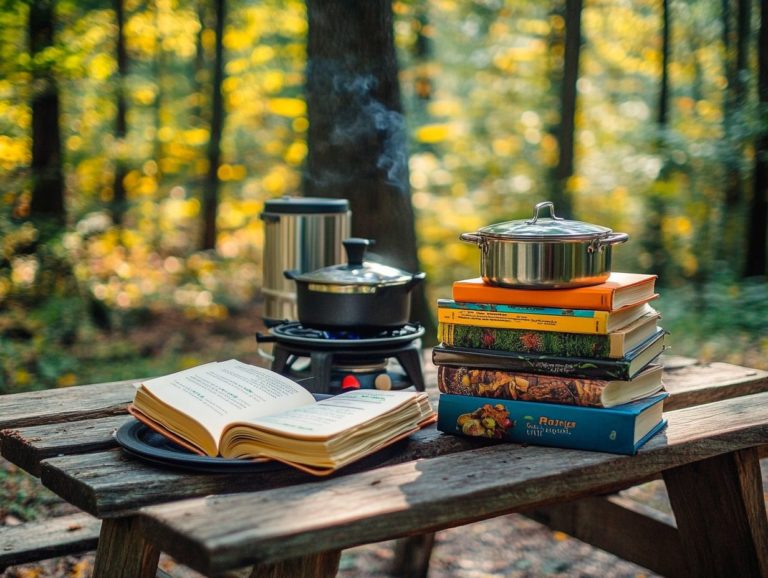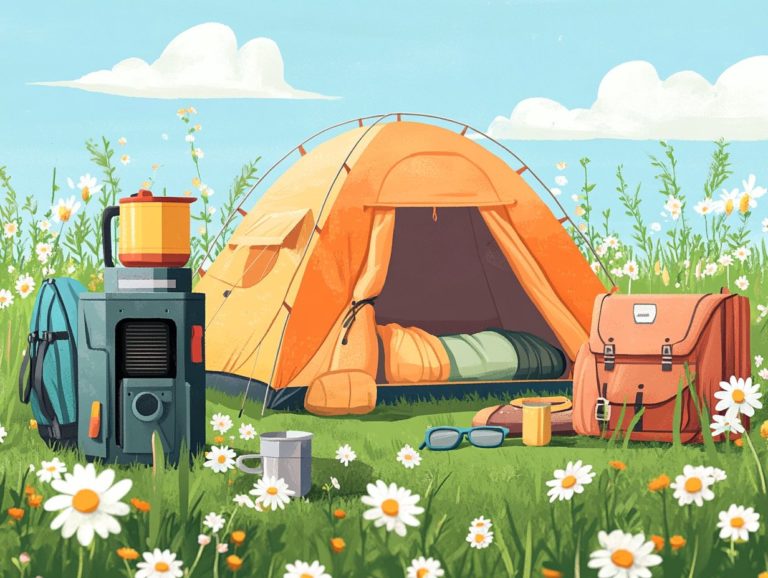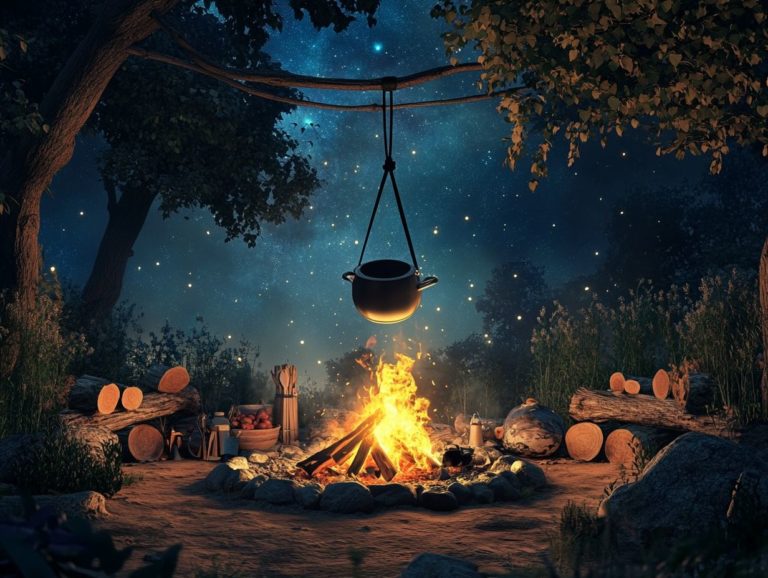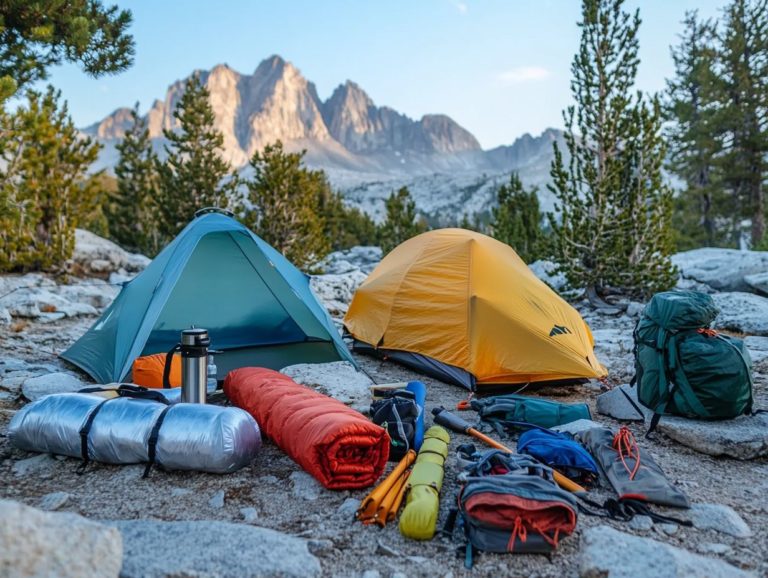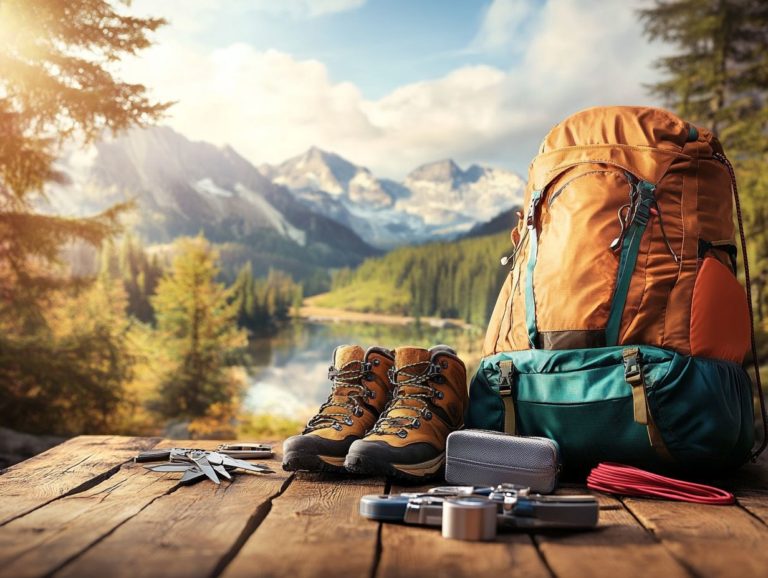The Importance of Water Filtration in Camping
Clean water is vital for a great outdoor adventure!
Whether you’re hiking, fishing, or simply soaking in the beauty of nature, access to drinkable water is essential for your health and enhances your overall experience.
This article delves into the array of water filtration systems available, comparing their effectiveness and suitability for various camping scenarios.
From grasping the key factors to consider when selecting a filtration method to tips on maintaining your system for water safety, you’ll discover everything you need for a hydrated adventure.
Contents
- Key Takeaways:
- The Role of Water in Camping
- Types of Water Filtration Systems
- Factors to Consider When Choosing a Water Filtration System
- Benefits of Using a Water Filtration System
- Proper Maintenance and Care of Water Filtration Systems
- Frequently Asked Questions
- Why is water filtration important in camping?
- What are the benefits of using a water filtration system while camping?
- How does a water filtration system work?
- What types of water filtration systems are best for camping and outdoor activities?
- Do I need to filter drinkable water if I am camping near a natural water source?
- How often should I replace the filters in my portable water filtration system?
Key Takeaways:
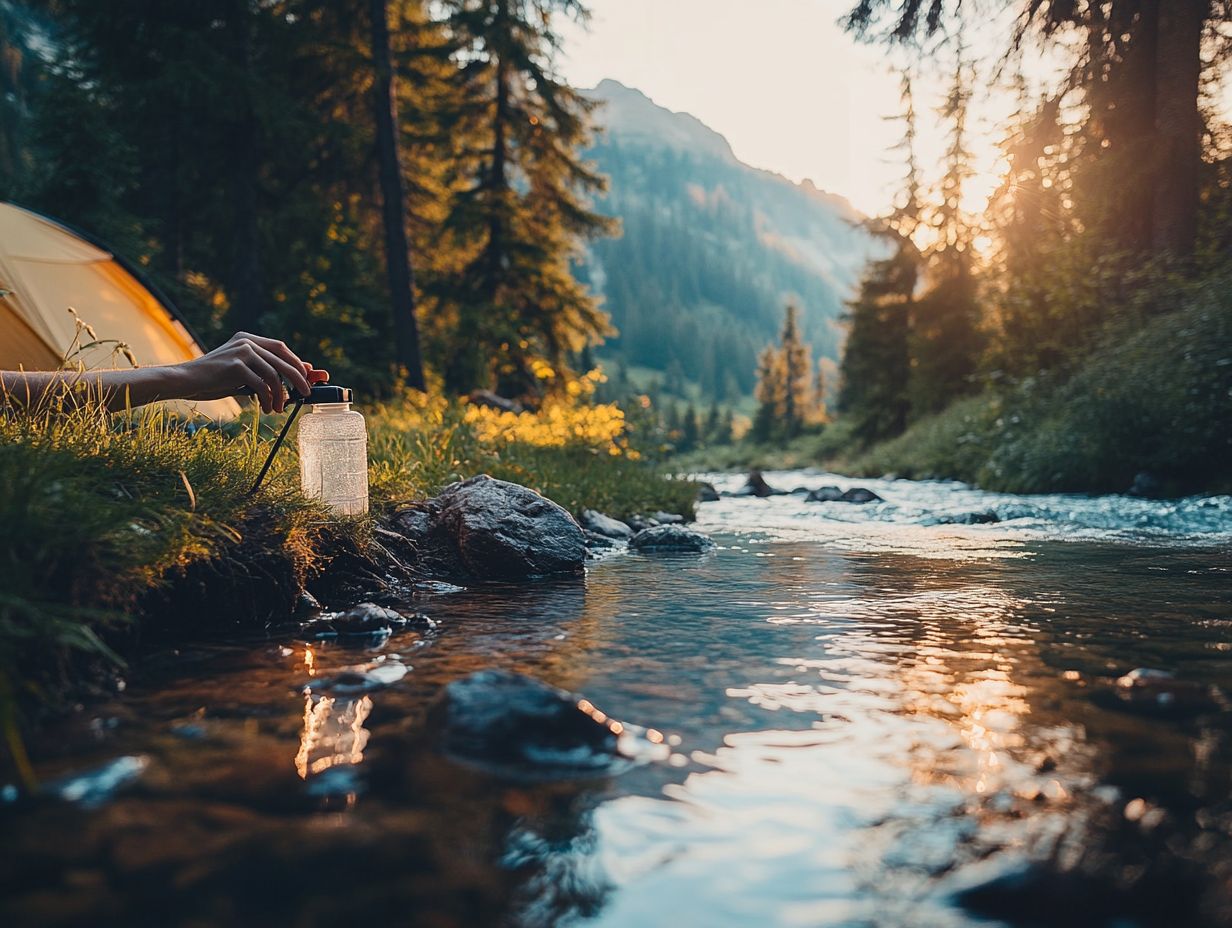
- Clean water is essential for camping as it keeps you hydrated and prevents waterborne illnesses!
- There are various types of water filtration systems available, each with their own pros and cons.
- When choosing a water filtration system, consider factors such as location, duration of the trip, and group size for the most suitable option.
The Role of Water in Camping
Water is essential when it comes to camping; it provides the hydration you need during outdoor activities like hiking and backpacking.
It also ensures proper sanitation for cooking. Having access to clean water is fundamental to your health and safety, making water filters and purification methods absolutely necessary.
Whether you re navigating through the wilderness or enjoying a leisurely camping trip, recognizing the importance of water quality and understanding water safety tips can significantly elevate your experience and help you avoid waterborne illnesses.
Why Clean Water is Essential
Clean water is absolutely necessary for you as a camper, especially when considering children’s safety and pet care.
It s not just about quenching your thirst; it s essential for preventing waterborne illnesses that could affect both your children and pets during your outdoor adventures.
Contaminated water sources can be breeding grounds for dangerous germs, like E. coli and Giardia, which present significant health risks and can lead to severe health issues.
These microorganisms can cause severe gastrointestinal issues, resulting in uncomfortable symptoms such as nausea, vomiting, and diarrhea. This is especially concerning for young children and pets, who often have more sensitive stomachs.
Make sure everyone has access to clean water for drinking and cooking, as inadequate sanitation can exacerbate these health threats.
By prioritizing safe water practices, you can immerse yourself in the joys of camping while sidestepping the shadow of illness, making your outdoor excursions safer and more enjoyable for everyone involved!
Types of Water Filtration Systems
Understanding the different types of water filtration systems available is essential for you as a camper seeking access to portable water during your adventures.
Each method whether it s gravity filters, UV treatment, or chemical purification, such as chemical disinfectants offers distinct advantages tailored to various situations.
By selecting the right system for your needs, you can ensure your hydration is both safe and convenient, allowing you to fully enjoy your outdoor experiences.
Comparing Different Methods
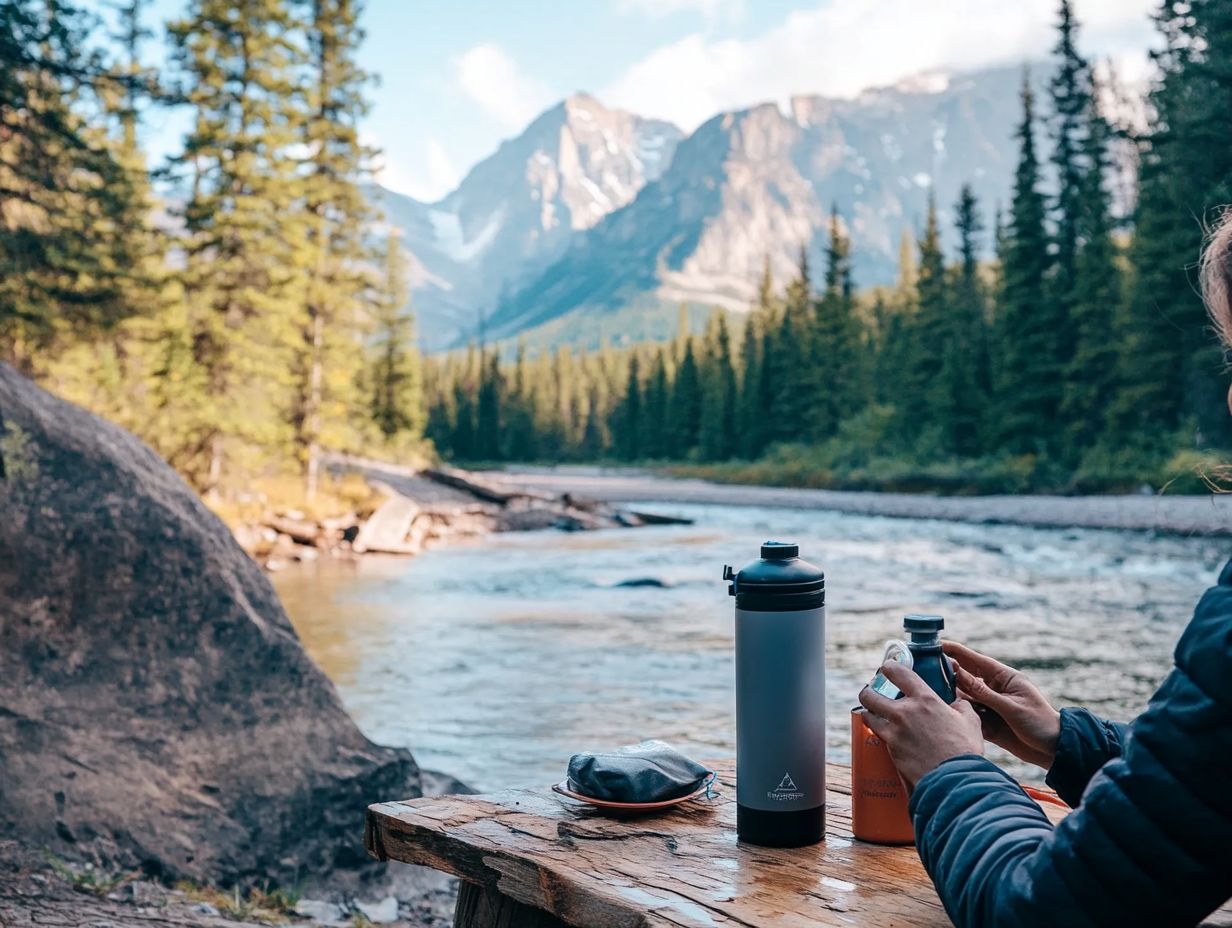
When evaluating various water treatment methods, gravity filters and hand pumps are favored options among outdoor enthusiasts. They effectively remove contaminants like E. coli and Cryptosporidium from natural water sources.
These filtration systems prioritize safety by reducing harmful bacteria. They also offer advantages in convenience and portability. Gravity filters have a straightforward setup, allowing you to fill a reservoir and let gravity do the work, making them ideal for group camping trips needing several liters of clean water.
Conversely, hand pumps are known for their lightweight design and speed. They allow you to quickly produce safe drinking water while on the move. Both types of filters are compact enough for easy storage in your backpack, ensuring you can stay hydrated without sacrificing valuable space or weight.
Factors to Consider When Choosing a Water Filtration System
Choose the right water filtration system based on your location, trip length, and group size. These factors help ensure that you have safe drinking water in the wild.
Location, Duration, and Group Size
Location, duration, and group size are important in selecting the right water filtration system for your camping trip. Each factor directly influences the capacity needed for sanitation and hydration.
In remote mountainous regions, fresh water sources can be scarce and may require boiling water for safety. This scenario needs a filter that can handle cloudiness, potential contaminants like sediment, and microplastics. If you’re urban camping near lakes or streams, be mindful of pollutants from human activities, which can raise contamination risks.
For duration, know how long your group will be in one spot. Longer stays increase the demand for reliable water purification methods and consistent access to filtered water. The size of your group impacts the choice of filtration system; larger groups may need more robust options or multiple units for a consistent supply of clean water, enhancing the camping experience.
Benefits of Using a Water Filtration System
The advantages of using a water filtration system while camping go far beyond access to clean water. You ll enjoy improved health outcomes, the convenience of easily securing filtered water, and enhanced water quality.
Better hygiene practices reduce your risk of encountering waterborne germs and support infection prevention.
Health and Convenience
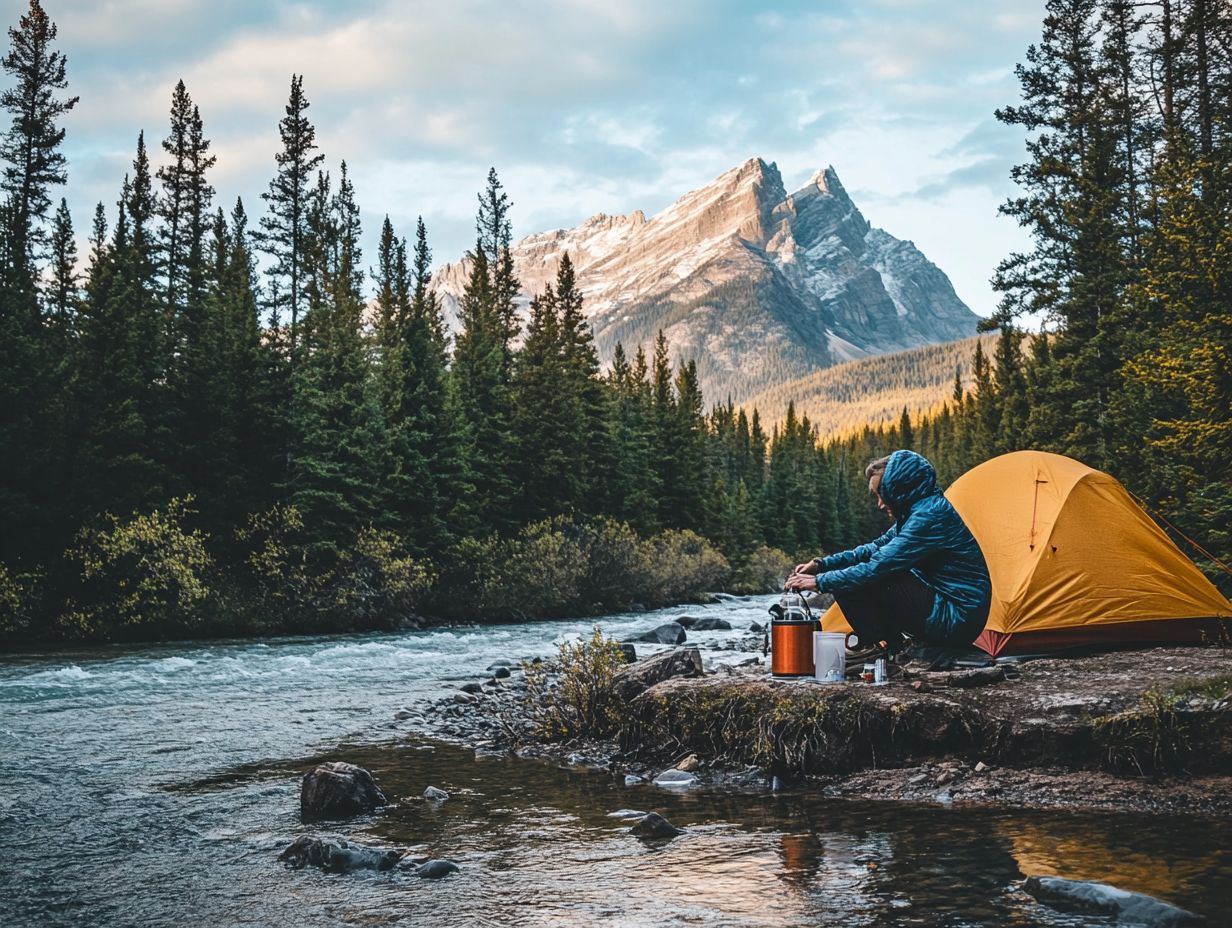
Using a water filtration system keeps you and your loved ones safe from waterborne illnesses. With clean water, you can stay hydrated and enjoy your outdoor adventures!
Having access to clean, filtered water is crucial for maintaining optimal hydration during physical activities, which is essential for your performance and stamina, especially while camping or backpacking. Contaminated water can lead to health risks like gastrointestinal issues, making safe drinking water vital for outdoor enthusiasts.
Thanks to the portability of modern filtration technologies, you can easily pack them in your gear. This allows for on-the-go hydration without carrying heavy water supplies. This convenience enhances your overall experience and promotes a healthier lifestyle in nature.
Proper Maintenance and Care of Water Filtration Systems
Proper maintenance and care of your water filtration system are essential for ensuring both its longevity and effectiveness, especially for providing safe water for your pets. By attending to these details, you can consistently enjoy clean drinking water during your camping adventures, while ensuring water quality meets hygiene standards.
Tips for Longevity and Effectiveness
To ensure the longevity and effectiveness of your water filtration system, regular maintenance practices are crucial. This includes checking for water contaminants.
Clean or replace the filters every three to six months. The timeline depends on usage and water conditions, especially if you’re in areas with high contamination concerns. Routine checks on all components hoses, connectors, and the like are important to identify any signs of wear or damage that could hinder functionality. This ensures you maintain optimal water safety.
When it s time to store your filtration system during off-seasons, make sure it s completely drained and kept in a cool, dry place to thwart any potential mold or bacterial growth that can compromise sanitation. Follow these maintenance steps to supercharge your system’s performance and ensure safe drinking water throughout the year.
Frequently Asked Questions
Why is water filtration important in camping?
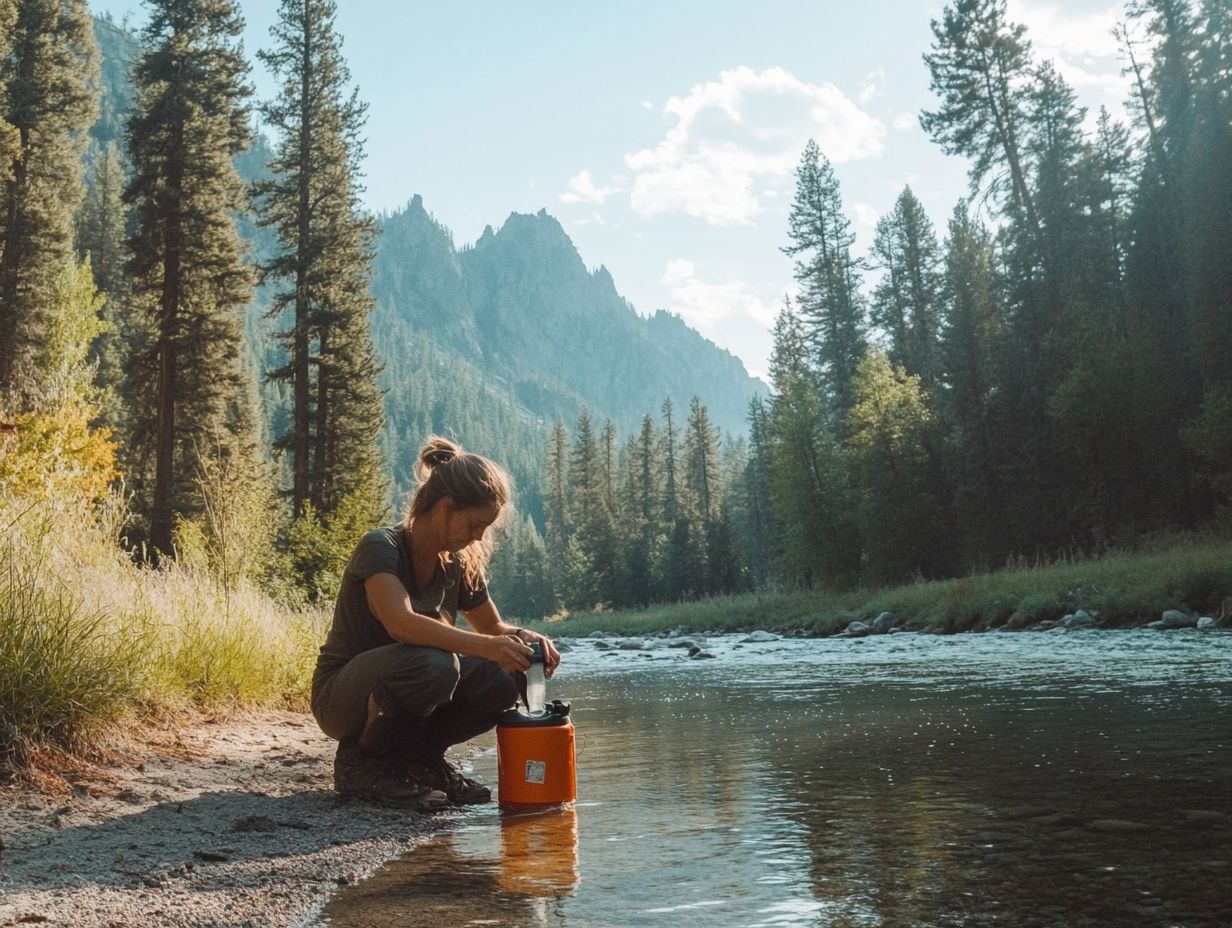
Water filtration is important in camping because it helps remove harmful bacteria, parasites, and other contaminants from natural water sources, making it crucial for kids and pets. Drinking untreated water can lead to serious illness and ruin your camping trip.
What are the benefits of using a water filtration system while camping?
Using a water filtration system while camping ensures that you have access to safe and clean drinking water. It plays a vital role in child safety. It also eliminates the need to carry heavy and bulky water bottles, making your camping experience more convenient and allowing for portable water options.
How does a water filtration system work?
A water filtration system works by passing water through a series of filters that physically and chemically remove impurities. This ensures the best water quality for your camping trips. Some systems also use UV light or other methods to kill bacteria and viruses.
What types of water filtration systems are best for camping and outdoor activities?
There are various water filtration systems available for camping, including pump filters, gravity filters, straw filters, and bottle filters. The best system for you will depend on your specific needs and preferences.
Do I need to filter drinkable water if I am camping near a natural water source?
It is always recommended to filter water from natural sources, even if they appear clean. Contaminants may not be visible to the naked eye, and it’s better to be safe than sorry.
How often should I replace the filters in my portable water filtration system?
This will depend on the type of system you have and how frequently you use it. Some filters need to be replaced after a certain number of uses or gallons filtered, while others can be cleaned and reused. Always follow the manufacturer’s instructions for proper filter maintenance.

